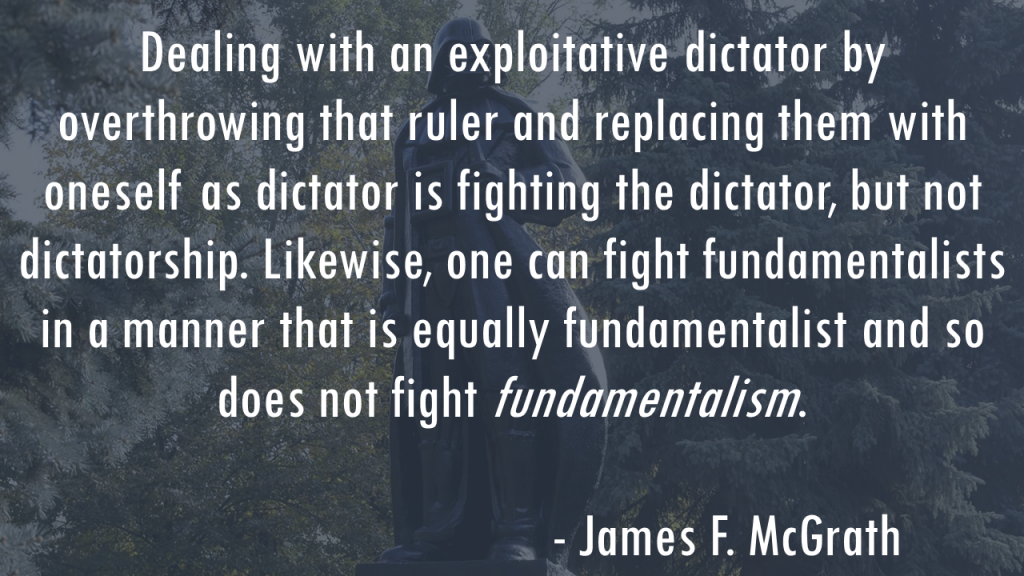Samantha Field has written an excellent post about the fundamentalist way of thinking. Far from being irrational, Field suggests, the fundamentalist might be called hyper-rational. There is a desire for absolute consistency and clarity, which is precisely why fundamentalist atheists who embrace mythicism, as well as fundamentalist Christians who embrace Biblical inerrancy, cannot tolerate the kind of uncertainty that historical inquiry, for instance, must treat as par for the course. Here’s a sample, containing excerpts from several sections of the post:
It’s perpetually frustrating to me…that there’s a certain movement of atheists that brand me as an idiot because I’m religious, or that I’m incapable of being reasonable or logical because I have faith. To this type of atheist, if I don’t accept fundamentalist Christianity as the Only True Way of being a Christian, I’m being inconsistent. Over the course of many conversations, I’ve usually found out that they were at one point Christian fundamentalists.
They may not believe in god anymore, but many never stopped to examine the root claims of the belief system they were raised in. They still think the fundamentalists are right about Christianity– and about how to parse evidence. Part of the reason many argue the way they do is that they’re still operating inside of a fundamentalist mindset, only without religion. To many, Modernism is the only “correct” way to reason, and Truth and demonstrable, provable, physical fact are inseparable…
I’m drawn to dichotomies, to absolutes, to if then statements, and either or views of reality. Part of that is the fact that I’m an ISTJ with a heavily dominant sensing preference, but the biggest reason is that I grew up a fundamentalist. I want things to either be true or false, right or wrong, provable or poppycock. To this day, there are moments where I have to fight with myself to acknowledge that more than one thing can be True at the same time, even though they may seem contradictory. I have to force myself to live in the tension, to think of arguments as a matter of degree and nuance rather than totally right or totally wrong.
On the other hand, it’s almost as equally frustrating when people don’t understand fundamentalism, and what it does to people. They don’t know that fundamentalists are ruled by logical consistency before any other consideration. What may seem like utter nonsense to you or me makes perfect sense if you understand the premise they’re working with and follow it to its conclusion…
Fundamentalism isn’t populated by unreasonable people; the problem is that they’re all too reasonable. If you don’t understand this, then a lot of other things are going to appear bizarre…To fight a thing, you have to know a thing. And that’s not just an external fight, either– I believe there’s a battle for fundamentalism going on inside each of us. In many ways, it’s far easier to fall into dichotomies and binaries than it is to resist them. Harsh dualities help us make sense of complex problems. But … we can’t let ourselves fall into those traps, because that’s when we start to lose compassion and let our heads overtake our hearts.
The whole post is worth reading. Click through to do so!













